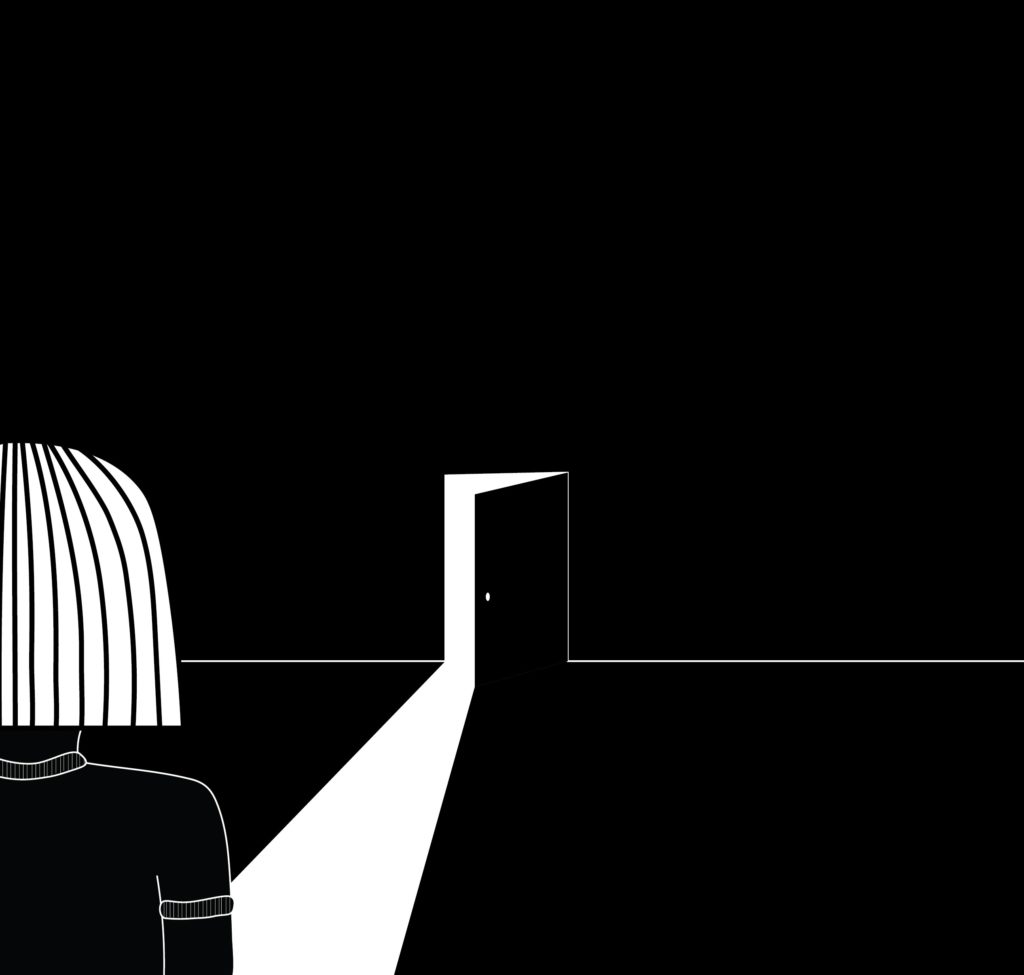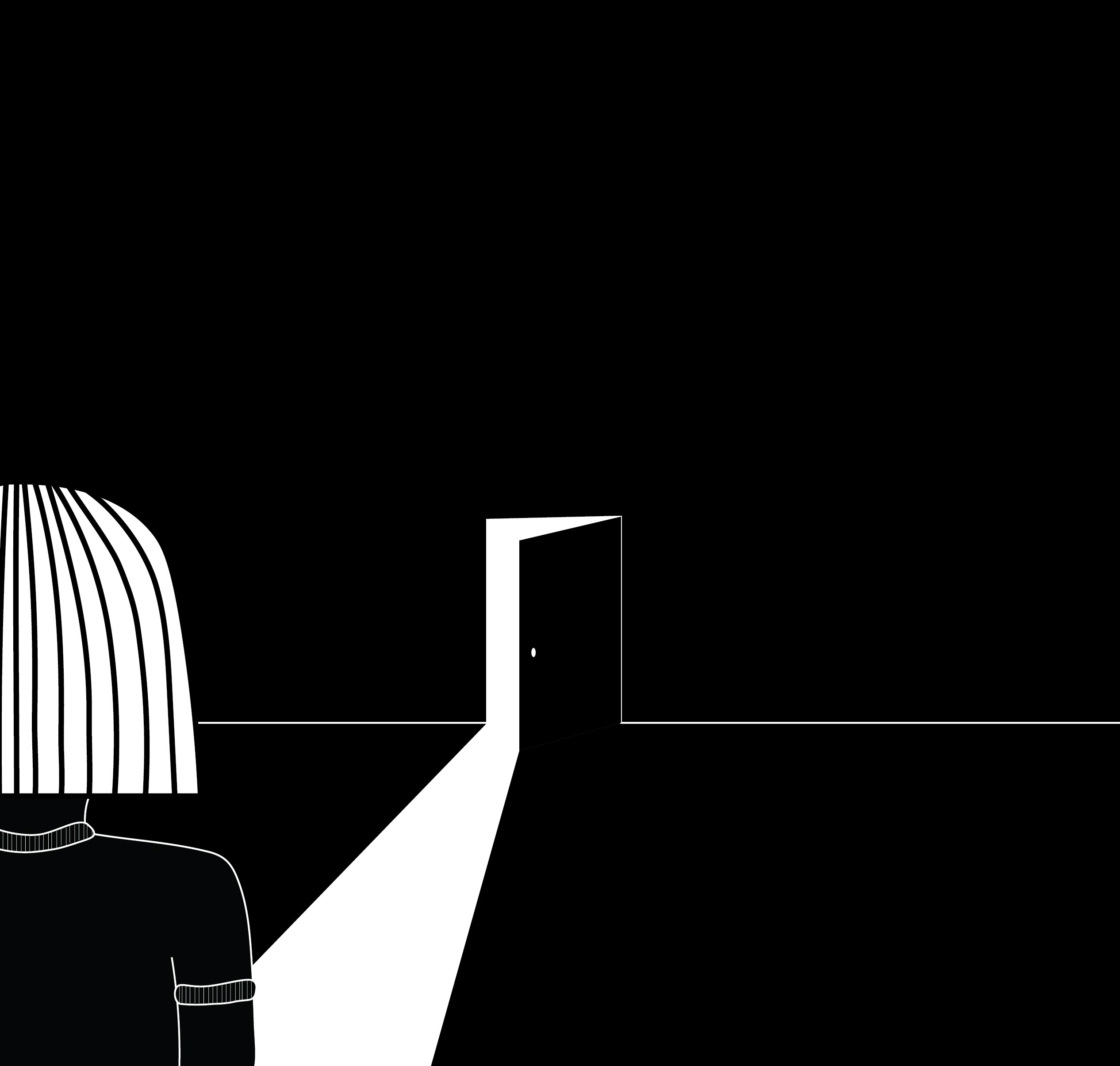“Daddy, I have had to kill you.
You died before I had time——
Marble-heavy, a bag full of God,
Ghastly statue with one gray toe
Big as a Frisco seal”
-Sylvia Plath
Mummy said that my father had a bad childhood and had let his misery stagnate like dirty water. That is he was ill in the head. So when he came home stinking of alcohol and violence, my sister and I steered clear of him, while my mother bore the brunt. She made dinner – 5 chapatis and a sabji, all of which nearly went to waste.
We had learned to spot signs well ahead of time. His eyes glowering, the alcohol in his hand, his torn, bloody cuticles and most of all his silence that sat with us at dinner as an unwelcome guest. It was strange but mummy retaliated in kind with her own silence and we followed suit. Only the cutlery was brave enough to make noise as we sat in anticipation.
My sister always made it a point to clutch my hand after I finished dinner. Chinky was a firefighter in her own right. Every night she waited for the cue and would take me to our bedroom as soon as it started. He would first make a comment about the food- there was too much salt. My mother would reply in silence. He’d then accuse her of trying to kill him with too much salt. Her silence sat heavier. “You’re sleeping with other men aren’t you, you whore?”, he’d say. If my mother dared to use her mouth in a conversation where only eyes were needed, the war would start. It was cue for my sister to rescue us and run to our bedroom.
We were barely ever witness to what happened after dinner, but I heard shrieks and voices. I saw her in my head, being dragged by her hair to her bedroom and I imagined him hurting her, holding her back by her hair and trying to cram his silence in her throat that dared to speak.
The next morning was always a kind of measured calm. As if our entire house was trying to walk on egg shells, holding its breath, trying to hide under the garb of a daily routine. I’d go running around looking for my water bottle and uniform. I was talented at misplacing my belongings just fifteen minutes before my school bus came. Chinky was careful- all her pencils went into one box, her uniform in one drawer. She held both my tiffin box and hers, clutched my hand as we went to the bus stop, and we managed to survive- just like that. Hiding under the covers of a daily routine – eating breakfast, running around after school, homework, tuition classes. We went about our day with an uneasy calm, waiting for the worst by nightfall.
We were a family that was particularly accident prone, but my mother kept finding new ways of trying to break our fall. She woke up with the sun and prayed, swept the floor, packed four tiffin boxes, and carefully braided my hair. Our house looked the brightest in the morning, on its best behaviour it pleaded with us to forget the violence that took place the night before.

There were times when my father didn’t need alcohol. We went through a period of calm and happiness when he came home before midnight and fell asleep on the couch. He didn’t pick fights and he didn’t talk to us. He wallowed in his own silence, until the next time he could find alcohol. Things would verge on the normal. He would get us walnut chocolate pastries from Just Bake, apologise and hug us. We went to get shawarmas late in the evenings and ate together as a family with laughter and dinner table talk instead of the usual silence surrounding us. Rent was paid on time, my father would agree to attend parent- teacher meetings and agree to teach me long division. These were the scarce sparks of hope that we held onto, and which my mother hoarded. When he resorted to violence and alcohol, we would turn to my mother for hope and she handed it out like spare change to us. She put an abundance of it in her Sheera, her palak paratha, her job, her smile and her occasional but bone- crushing hugs.
She also took us to the children’s playground in Indiranagar, where she sat and laughed as she saw us playing hide and seek, swinging from the monkey bars and taking flight with the breeze that only gently toyed with her hair, making her look 10 years younger and more hopeful. It was a much needed respite from the listlessness and dreariness that our house signalled in the afternoon, the silence of the evening and the violence at night.
I remember one such night when we sat around the television, eating our dinner, laughing at Akshay Kumar’s antics in Houseful. When suddenly, I heard his angry, heavy footsteps. I could feel nausea crawl up my throat as he came in to the living room. His walking stick in one hand and madness in the other. He had been nursing his fury for days, nourishing it with his silence and our happiness.
First began the shouting match. A string of curse words spoken back and forth and for the first time I saw my mother let loose. She looked like Goddess Kali. She positioned her petite body against my sister and I, screaming in wild abandon, wailing a corrosive lunatic wail as she let spittle gather at the end of her lips. All that silence had caused her to gag and she was violently sick in front of him today. I remember wondering if my mother was possessed. Shobha aunty (our landlord) always told us to look out for signs of women acting out or acting hysterical. It was a sure sign of possession. But for the first time in years, I felt safe with a mad woman screaming wildly and tugging at her hair. It was awful, terrifying yet comforting at the same time. It didn’t happen a lot over the years, but when it did I felt like we were invincible. Who could stand their ground against a mad woman intent on protecting her children?
My dad died years later. It was the summer of 2014 and when I saw his corpse I couldn’t recognize him. His face looked clean of any rage and repulsion that he so deeply harboured. It was comical, because I actually thought it was a good look on him. He looked too peaceful to be him. He was marked by the kind of delicateness and peace that death brings, two things I would never associate with my father.
Although he was gone, it felt like the house still harboured his presence. His heavy footsteps, his walking stick and most of all his silence that was now replaced by a heavier kind of silence that descended on us like a blanket almost smothering us and it came from us because we didn’t know how to mourn. We didn’t know how to mourn a man like my father. It took a lot of strength and acceptance to mourn him and I didn’t until years after his death.
Days passed into weeks and weeks into months, and the evenings eventually began to loosen their noose around our neck. It felt like I was being gutted from the inside by a mass of grief and confusion and anger. A dangerous and malignant combination so stagnant in my body, that it felt like it was going to metastasize soon.
My mother’s grief was softer, more resilient and much more accepting. Her grief felt like dull knives sawing into her soft skin and it was burdened with the responsibility of carrying us forward, protecting and making do with the remains of a family my father had first ravaged and then left behind. Her grief was a stalwart in some sense, carrying all our burdens. I don’t think we gave her enough credit for it in those times.
After a few months, the silence became unbearable. We were forced to move on, fill our evenings with the sound of cutlery, of the whistle blowing from the kitchen, the sound of my sister’s laughter as she came back from work to tell us stories, and my mother’s smile. I preferred this quiet to the loud silences that we were subject to before.
But something didn’t feel right. I only felt the ripples back then, But I knew an ocean of grief was waiting to wash over me. If my father was a good man, this would have been simpler. Tough to get through but simpler. But we were trying to mourn a man who in all his complexity had left behind a myriad of confusing emotions to deal with. I felt crippled by his twisted way of showing us love. He gave us his coal black rage, his apathy, his love and his burdens all at the same time. And yet in his death he gave me the strength to hold myself accountable to my own emotions, it made me realise that pain and grieving can be life long processes and it’s okay to take how much ever time I needed to take in order to grieve
I’d always been taught to be kind to the dead. To mourn them respectfully, to wear our grief for them without any shame and to accept the emptiness. But my grief was marred by memories of a man whose favourite expression was repulsion. Who liked to express his love for us with bruise marks on my mother’s body. However hard I tried to tame these thoughts, to bury them, they remained deep in the pit of my stomach in the form of a silent, throbbing malicious knot ready to unravel at any given point in time. I wasn’t grieving properly, but I was making do with whatever feelings I hadn’t suppressed. I was making do with the calm quiet that our home now had the liberty to house, with my mother’s smile, my sister’s loud laughter and the breeze that used to blow in our balcony when we sat down for dinner. It was something I would pay the price for later, but it was the only thing that kept me sane back then and broke our fall. It gave me hope, perhaps because we were capable of being happy; we weren’t so accident prone after all.
“There’s a stake in your fat black heart
And the villagers never liked you.
They are dancing and stamping on you.
They always knew it was you.
Daddy, daddy, you bastard, I’m through”
-Sylvia Plath
Illustration by Vinaya Mani
Nikhita Raaj
Latest posts by Nikhita Raaj (see all)
- Accident prone - 17th December 2020






ARUN ERASMUS 17th December 2020
A beautifully written and well worded piece from your heart! Loved the way you vented out your thoughts into words.
You’ve a natural flair for writing. Cultivate it.
Asha n Ashok 23rd December 2020
Hariom Nikita
Well Done very touched.
So pleased to see you accomplishing great things.
Congratulations on your well
deserved success. Best wishes